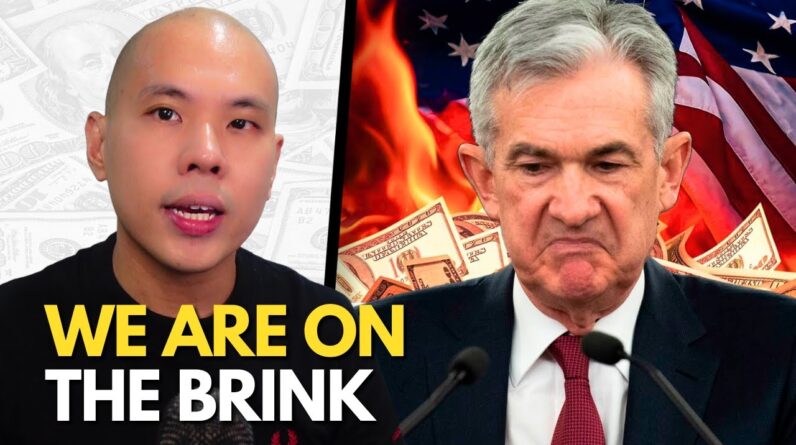Welcome to our blog post on a crucial aspect of investing: factoring in the worst-case scenario. As an investor, it is essential to be prepared for unforeseen challenges and downturns to minimize risks and maximize returns. In this comprehensive guide, we will delve into the key strategies and considerations that can help you navigate through uncertain times successfully. Whether you are a seasoned investor or just starting your investment journey, this article will provide valuable insights and tools to factor in the worst-case scenario and make informed investment decisions. Let’s dive in!
How to Factor in the Worst Case Scenario as an Investor: A Guide to Investing
Introduction
Investing can be a thrilling and lucrative endeavor, but it also comes with its fair share of risks. As an investor, it is essential to adopt a realistic approach and not take anything for granted. While it’s easy to get carried away by success stories, it’s imperative to factor in the possibility of worst-case scenarios. This guide aims to explore the importance of considering potential risks, understanding different cultures and markets, and the impact it can have on your investment portfolio. By following these strategies, investors can make informed decisions while minimizing the negative consequences.
1. Consider the Worst-Case Scenario
– Investing is not always smooth sailing
Investors must understand that investing is not always a smooth sailing journey. Even successful businesses can face unexpected challenges. For instance, a well-established company may suddenly see their platform copied by competitors, resulting in a decline in market share and profits. By considering such worst-case scenarios, investors can better prepare themselves mentally and financially.
– Don’t ignore potential risks
Ignoring potential risks is one of the biggest mistakes investors can make. It’s crucial to conduct thorough research and analyze the potential risks associated with an investment opportunity. This includes studying the competitive landscape, regulatory environment, and market trends. By identifying potential risks early on, investors can take precautions and mitigate any negative impacts.
– Importance of diversification
Diversification is a key strategy to factor in the worst-case scenario as an investor. By spreading your investments across various sectors, industries, and asset classes, you can reduce the impact of any single investment failure. Diversification helps ensure that even if a worst-case scenario materializes in one area, the overall portfolio remains relatively stable.
2. Understanding Different Cultures and Markets
– Importance of cultural understanding
In today’s interconnected world, understanding different cultures is essential for a strong investment portfolio. Investing in foreign markets requires a deep understanding of the local culture, customs, and business practices. This knowledge allows investors to identify potential risks, adapt to cultural nuances, and build lasting relationships with local partners.
– Navigating different markets effectively
The way others perceive us can significantly impact our ability to navigate different markets effectively. As an investor, it’s crucial to be aware of how your actions and decisions are perceived by others. Cultivating cross-cultural communication skills and understanding can help build trust and rapport with local counterparts, enabling smoother business transactions.
– Neglecting cross-cultural understanding can be costly
Neglecting cross-cultural understanding can have detrimental effects on an investment portfolio. It can lead to miscommunication, misunderstandings, and even conflicts. Investing in a market without taking cultural factors into account can result in a weaker investment portfolio and reduced profits. Therefore, investors must invest time and effort into developing cross-cultural competencies.
3. Conclusion
Investing is a complex endeavor that requires careful consideration of potential risks and factors. By factoring in the worst-case scenario, investors can make better-informed decisions, minimize risks, and protect their investment portfolios. Understanding different cultures and markets is essential, as it improves the investor’s ability to navigate diverse environments effectively. Ultimately, by adopting a realistic approach and considering potential challenges, investors can ensure the long-term success of their investments.
Frequently Asked Questions (FAQs)
-
Q: Why is it important to consider the worst-case scenario as an investor?
A: Considering the worst-case scenario helps investors anticipate potential risks and take necessary precautions. -
Q: Can successful businesses face unexpected challenges?
A: Yes, even successful businesses can face unexpected challenges, such as competition copying their platform. -
Q: What are the consequences of ignoring potential risks?
A: Ignoring potential risks can lead to negative consequences, including financial losses and diminished investment returns. -
Q: How does understanding different cultures and markets impact investments?
A: Understanding different cultures and markets is crucial for building a strong investment portfolio and making informed decisions. -
Q: What are the consequences of neglecting cross-cultural understanding in investing?
A: Neglecting cross-cultural understanding can result in a weaker investment portfolio and reduced profits due to miscommunication and conflicts.










